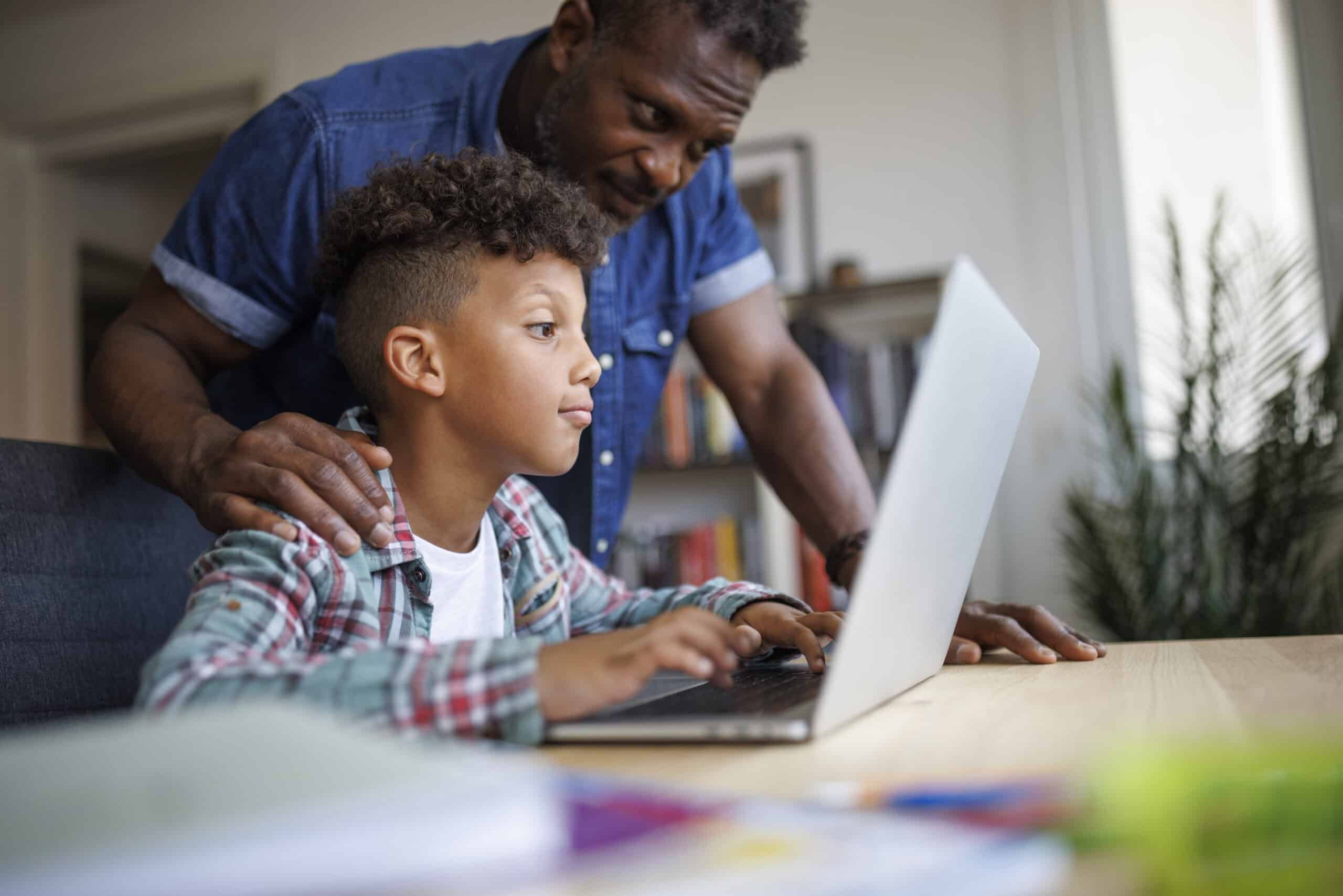Pediatrics
Want to learn more about this at Kettering Health?
Kids in the Dayton area recently went back to school for the year with a mixture of in-person and remote learning. Pediatrician Mercy Chong, MD, gave tips for students as they start the new school year so they can get off to a successful start, no matter how they are learning.
Establish a routine
Students need to have a routine, especially if they are learning virtually. Children are used to the structure that school provides and emulating that schedule at home will help them feel more comfortable.
“Kids thrive on routines and knowing what to expect in life. Get ready for school in the morning just like you would a normal school day. Ring a bell or play a ‘pump up’ song to signify the start of the school day. Even just getting dressed for the day can give a sense of purpose and productivity,” Dr. Chong says.
Get enough sleep
Part of that routine that is so important is a regular sleep schedule. Students should be going to bed and waking up at the same time every day.
“Sleep helps mood, memory, attention, and critical thinking skills. Aim for the same bedtime to allow eight to 10 hours of sleep every night,” Dr. Chong says.
Get moving
With remote learning, students don’t have gym class or recess to rely on for their physical health. Dr. Chong says it is still important for children to be active throughout the day.
“Being physically active is critical for both emotional and physical health. Physical activity can calm nerves, help with focus, and promote a good night’s rest,” Dr. Chong says. “Make recess and PE a requirement in your day. Set aside five minutes between tasks or classes to get up and stretch, race around the house, or do jumping jacks.”
Go outside
Kids doing remote school can feel stuck inside as they finish their school work, so Dr. Chong says it is still necessary for them to get fresh air.
“Try having your child do their daily reading on the porch, take the dog for a walk, or simply lay outside in the grass during a short break in the day. A change in environment and being outside in nature can help kids relax and refocus,” Dr. Chong says.
Allow for boredom
While it is good to stick to a routine, Dr. Chong says some flexibility and downtime can be beneficial for children.
“While routine is good, don’t feel pressured to plan out every moment of your child’s day. Allow for some unscheduled and unstructured time. Creativity can flourish during moments of boredom,” Dr. Chong says.
Give children a sense of control
Whenever possible, parents should let their children make small decisions that give them a sense of control over their lives.
“Kids function better physically and emotionally when they have a sense of control over things in their lives. Help your child find areas in their life where they can have some control,” Dr. Chong says. “Even letting them have simple choices, like deciding which room to study in, can help reduce stress. Help them set short-term, achievable, concrete goals to give them something to work towards.”
Be a role model
With the ongoing pandemic, children will look to their parents to learn how to react and cope with the unknown.
“Our behaviors and attitudes influence how our children make sense of the world. They find balance from our stability. Engage in self-care, which will not only help your own mental health but also show your child that it is important to take care of oneself,” Dr. Chong says.
“Show your kids how to react to setbacks and challenges. Demonstrate how to find ways to shine in difficult situations. Engage in positive thinking, participate in acts of kindness, and focus on gratitude. These actions benefit both physical and mental health.”
Check in often
This is a stressful time for everyone, even children. With the uncertainty of school and remote learning, some students may be exhibiting signs of stress or anxiety. Check in with your student and seek help when necessary.
“Touch base with your child periodically about how school is going and about interactions with friends, classmates, and teachers. Watch for changes like excessive crying or irritation, excessive worry or sadness, unhealthy eating or sleeping habits, or difficulty concentrating,” Dr. Chong says.
“Talk with your child’s doctor if you see these signs that your child may be struggling with stress and anxiety. Check with your school for how they can provide mental health services to students in need of support.”
For more tips on returning to school this year, visit the CDC’s checklist on in-person [PDF] and at-home [PDF] learning.










